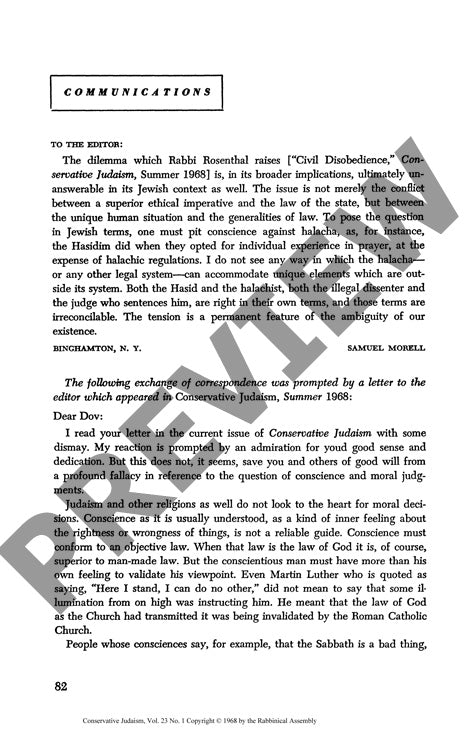Communications
Couldn't load pickup availability
This scholarly exchange examines fundamental tensions between individual conscience, religious law (halacha), and civil authority within Jewish ethical frameworks. The correspondence addresses questions of moral decision-making, civil disobedience, and the role of subjective versus objective moral standards in religious and secular contexts. The methodology consists of theological argumentation and comparative analysis between Jewish law and democratic legal systems. Samuel Morell argues that the conflict between conscience and halacha represents an irreconcilable tension inherent in human existence, citing Hasidic practices as precedent for individual experience over legal regulations. Seymour Siegel counters that conscience must conform to objective divine law rather than subjective feeling, warning that moral subjectivism threatens societal stability and minority protection. Dov Peretz Elkins responds by distinguishing between abstract Law and individual laws, asserting that subjective judgment remains essential for determining moral rightness. Additionally, Ezekiel Leiken critiques Rabbi Kollin's dismissal of Zionism, arguing that messianism rather than nationalism constitutes Zionism's primary element and defending the continued relevance of Zionist frameworks for Diaspora-Israel relations. The exchange demonstrates ongoing scholarly debates regarding authority, interpretation, and application of Jewish ethical principles in contemporary contexts.

More Information
-
Physical Description
-
Publication Information
Published 1968
ISBN
-
Publication Credits

